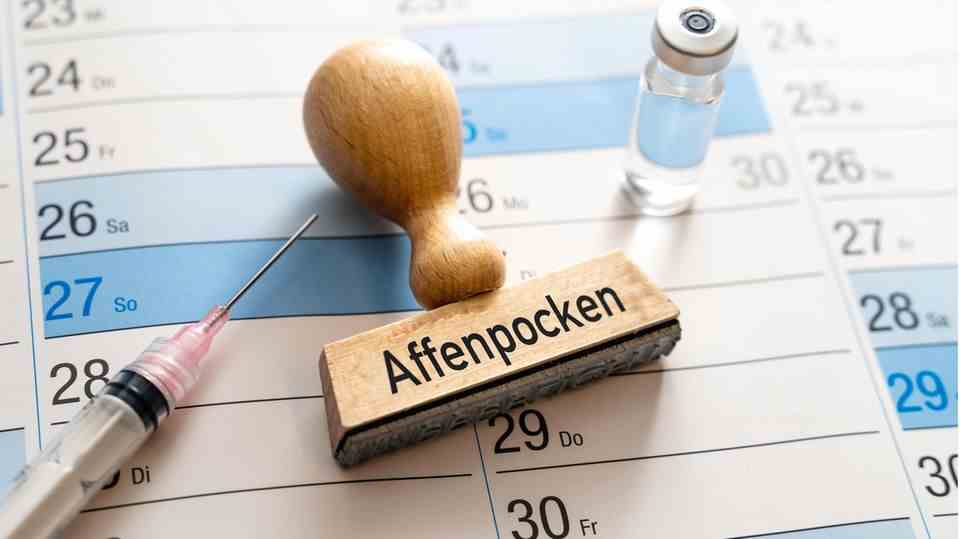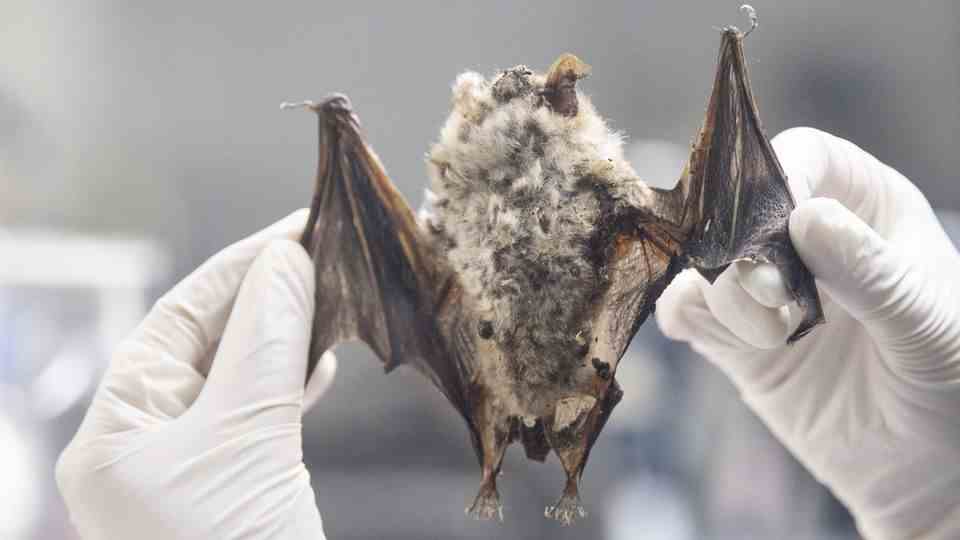prevent stigma
WHO wants to change the name of monkeypox
Electron micrograph of monkeypox virus
© Freya Kaulbars/RKI/DPA
For a few weeks, monkeypox has been detected in a number of countries where the virus infection had previously played no role. The WHO convenes an emergency committee – and wants to give the virus a new name.
The World Health Organization (WHO) wants to give monkeypox a new name. There have long been efforts to stop naming diseases after animals or regions to avoid any possibility of discrimination or stigma, a WHO spokesman said on Tuesday evening. WHO chief Tedros Adhanom Ghebreyesus had previously announced in Geneva that a decision should be made shortly.
Like the British BBC reported, there is a proposal to rename the monkeypox virus to hMPXV.
The term monkeypox, for example, could indicate an origin from Africa, said the WHO spokesman. Until May, the virus and the disease — both are to be renamed — were known almost exclusively from Africa, but the name was already misleading: the virus was first detected in monkeys in a laboratory in Denmark in 1958. However, according to current knowledge, it should be more common among small rodents. The monkeys are only considered intermediate hosts.
WHO Emergency Committee on Monkeypox on 23 June
When the corona virus emerged at the end of 2019, the WHO acted quickly to prevent the spread of names such as “Wuhan virus”, named after the Chinese city where it was first detected. On February 11, 2020, the organization announced that the novel virus is called Sars-CoV-2 and the disease it causes is Covid-19.
Out of concern about the increasing evidence of monkeypox around the world, the WHO has convened an emergency committee for next week. The panel is to decide whether – like Corona – it is a “health emergency of international concern” (PHEIC).
The emergency committee is scheduled to meet on June 23, according to the organization and the WHO chief on Tuesday. This type of committee brings together professionals who are particularly familiar with the disease in question. The declaration of emergency is the highest level of alert that the WHO can impose. Such a declaration has no direct practical consequences, but is intended to wake up the member countries. An emergency has been in effect since the end of January 2020 due to Sars-CoV-2.
RKI: Low risk to the population
As of Tuesday, the WHO had reported more than 1,600 cases of monkeypox worldwide and nearly 1,500 suspected cases from 39 countries. 32 of those countries had no known cases before May. The virus has been rampant in the other seven countries in Africa for decades. So far, 72 deaths have been reported from African countries. WHO is investigating a possible death from monkeypox from Brazil.
The concern of the WHO relates to three areas, said Tedros: The virus is behaving unusually, more and more countries are being affected and a coordinated response is therefore necessary. However, Tedros emphasized that the experts on the emergency committee are looking at the problem and have not yet decided whether they consider it necessary to declare an emergency. “We don’t want to wait until the situation gets out of hand,” said WHO specialist Ibrahima Socé Fall.
According to the Robert Koch Institute (RKI), the number of affected patients in this country rose to almost 230 on Tuesday. The risk assessment of the RKI in Germany continued on Tuesday: “According to current knowledge, the RKI assesses a risk to the health of the general population in Germany as low.”

Teaser picture: Picture Alliance/Michael Bihlmayer
Differences between monkeypox and corona
The virologist Gerd Sutter from the Institute for Infectious Medicine and Zoonoses at the LMU Munich said on request that the numbers in this country were “no surprise” and “not frightening”. According to the current state of knowledge, the virus is transmitted, as expected, practically only through direct contact. He described the rate of spread as “relatively slow”. With the vaccination of contact persons or specific target groups “it should still be possible to limit the outbreak,” he expects.
There are still isolated transmissions, “but the outbreak tends not to develop exponentially growing numbers of cases,” said Timo Ulrichs, an expert in global health at the Akkon University of Human Sciences in Berlin. A sexually transmitted infection spreads more slowly than one that is airborne. Other experts had recently pointed out many differences between monkeypox and the corona pandemic.
Germany should receive vaccine doses
The Federal Ministry of Health expects a delivery of 40,000 doses of smallpox vaccine, which can be used against monkeypox, on Wednesday June 15th. The federal government is making the vaccine available to the federal states, a ministry spokesman said. The Standing Vaccination Commission (Stiko) announced last week that the drug would be recommended for certain groups, such as contact persons of infected people. The first proof of monkeypox in this country became known a good three weeks ago.
Due to the risk situation so far, the WHO does not consider mass vaccinations to be necessary, according to a technical guide on Tuesday. The vaccines developed against smallpox, which was eradicated in 1980, may offer some protection against monkeypox, but so far there have been hardly any studies on this. The WHO called on all countries to share smallpox vaccine stocks equitably with others.
Monkeypox is considered a less severe disease compared to smallpox, which has been eradicated since 1980. Experts had warned of the virus spreading, for example at upcoming festivals and parties. According to the RKI, the incubation period is 5 to 21 days. Symptoms (including fever and skin rash, for example) usually go away on their own within a few weeks, but can lead to medical complications and, in very rare cases, death in some people.


